For different people
art means different things. For Shereen Quttaineh, it is “an opportunity to
feel grounded”.
Quttaineh,
interested in creating art since childhood, would often use her mother’s sewing
machine to make random
artwork; she also dabbled in other art forms, she said
in an interview with
Jordan News.اضافة اعلان
“Being exposed to
so many materials by my parents has given me the ability to explore art freely
and merge various media,” she added.
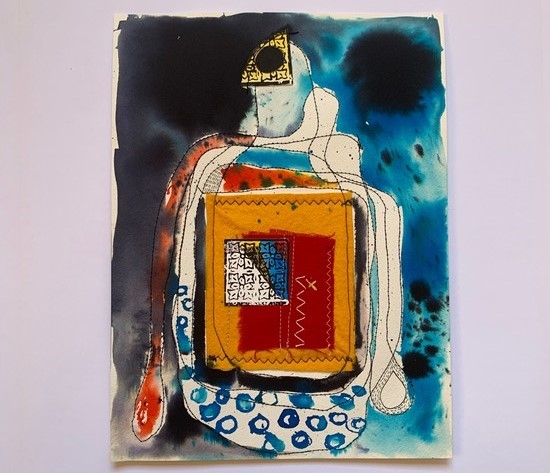
After graduating
with a bachelor degree in fine arts from
Yarmouk University, Quttaineh decided
to pursue a postgraduate degree in education at the University of Nottingham.
She has 22 years of experience as a teacher, having started in early childhood
education and later becoming a visual arts educator.
While the general
public tends to associate art with brushes and color palettes, Quttaineh takes
a different approach. She realized that textile work and embroidery give her a
level of freedom that painting could not.
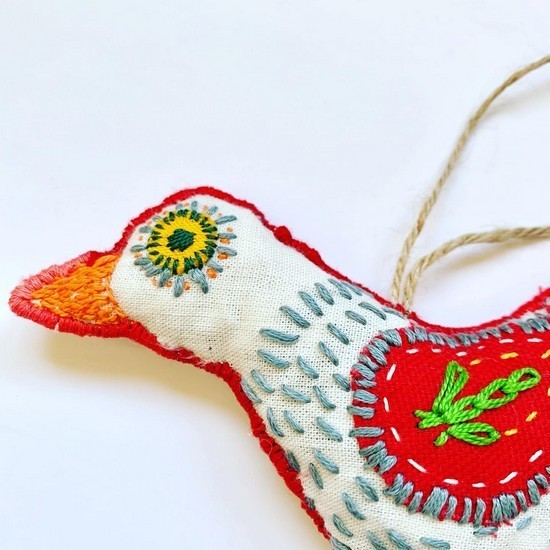
During COVID-19,
she had plenty of time to explore new media, such as printmaking and
embroidery, and spent a lot of time making art. She considers this period the
beginning of her career as an artist, having started developing her brand
during this period. For instance, she started creating
Christmas ornaments,
made with upcycled materials such as old curtains and cushions filled with tiny
scraps of fabric.
She first
embroidered on paper before switching to fabric collages for the freedom they
offered. All she needed was a needle, fabric, thread, and scissors. Embroidery,
she said, is a “forgiving medium”, as one could undo and redo any part of the
work as desired. Quttaineh would often cut up pieces she made and integrate
them into new artwork or products.
Having
traditionally been considered a craft in many parts of the world, textile art
is nowadays gaining approval for being just that: an art.
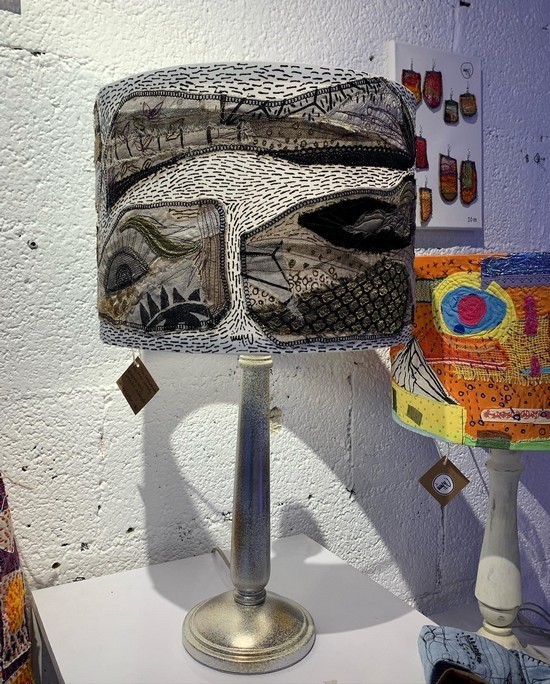
Every culture has
its approach to embroidery, with motifs often being inspired by the
surroundings. Although it is a traditional craft, several artists have been
utilizing embroidery in more modern ways. Quttaineh sometimes incorporates
cross-stitch motifs into her contemporary pieces, as she loves the contrast
between the rigidness of some materials and the more organic designs she makes
with the thread.
She draws
inspiration from nature, and from crafting methods from around the world, such
as the Japanese sashiko embroidery, which uses a basic running stitch.
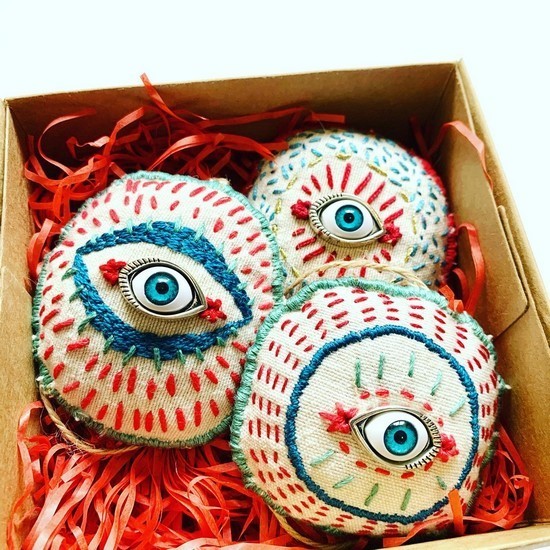
Quite a lot of
her work has the eye to protect against evil and the tree of life, which she
finds fascinating and that can be found in cultures around the world.
“In my textile
collages and mixed media, I have created some more abstract pieces focusing on
mimicking nature. Some of the work is more representational, portraying women,
animals, the tree of life, and floral designs,” she said.
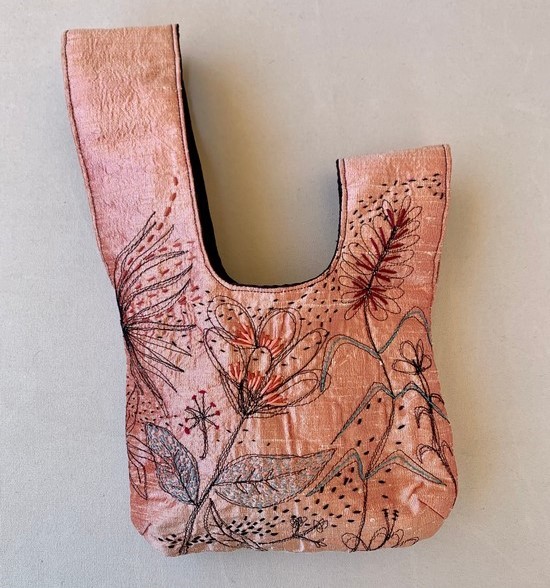
Quttaineh uses
discarded fabrics, plastics, or any other material she can embroider on, and
incorporates printing and beading into fabrics. The various types of threads
provide her with a variety of options, and create different effects. The
textures, prints, and transparencies of different materials also play a big
role in the compositions.
She creates art
and transforms it into unique, functional pieces, mostly using reclaimed
fabrics, discarded plastic bags, and netting. This way, she said, she
contributes to lessening waste.
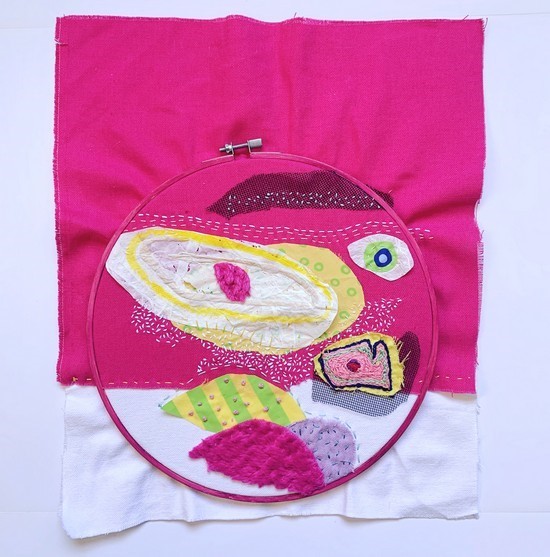
Quttaineh created
her bag collection as a collaboration with her mother. The idea it is to
transform unwanted clothes into limited-edition embroidered bags. Her mother
makes the bags and she embroiders the artwork on them. The bags are inspired by
Japanese knot bags and the artwork on them is inspired by talismans and nature.
“For the
earrings, I use reclaimed materials; I deconstruct pieces and make several
miniature artworks, these being the earrings. So you would be wearing miniature
artworks, owning a part of an artwork,” she said.
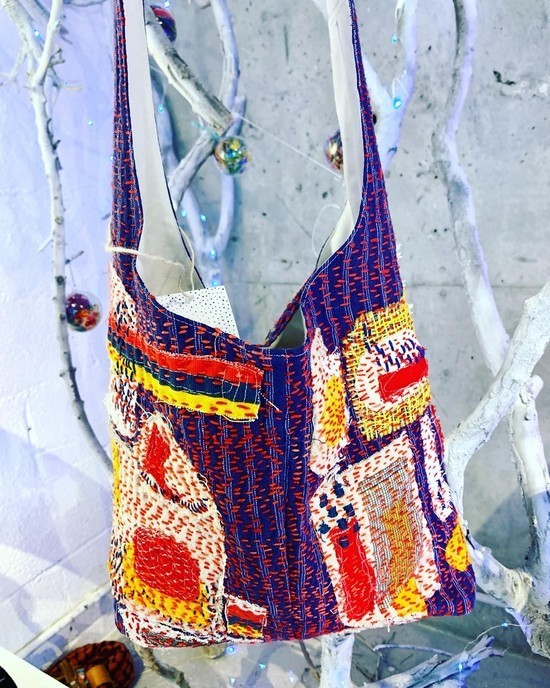
Quttaineh has
signed up for workshops online ranging from textile-based art to painting and
drawing, “to feed the artist” in her.
Participating in
workshops with local young artists, such as the mono printing workshop she took
with Raneem Al Jaloudi and Zellige clay tileing with artist Ruba Abu Shosheh
inspired her in many ways.
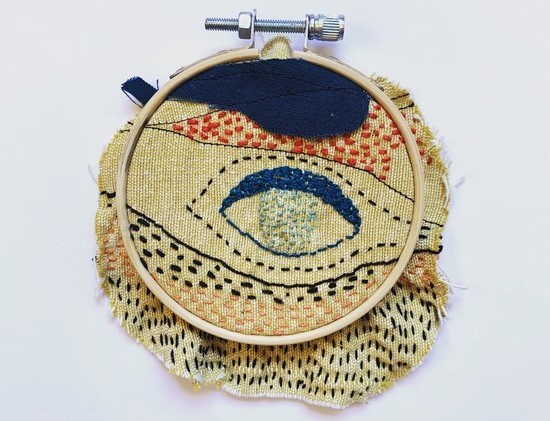
Collaborating
with artist Noor Al Taher also gave her new ideas and inspired new approaches
to her work. They have been working on some textile pieces, transforming them
till they become tapestries.
Quttaineh recently took a
sabbatical to focus on her art, hoping to turn it into a full-time job. She
participated in a few joint exhibitions in galleries like Jodar Artistry and
Wadi Finan.
Read more Culture and Arts
Jordan News

